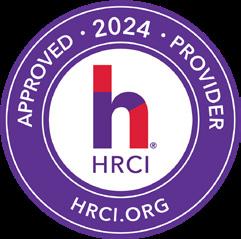






When Susan George first started teaching at the Susanville Elementary School District, she had five years of prior teaching experience. The District compensates teachers according to a salary schedule based on their training and years of experience. The relevant collective bargaining agreement stated that new unit members with no experience would be placed at step one of the salary scale. New members with prior teaching experience would receive one year of credit for each year of experience, up to a maximum of 12 years of credit and a maximum placement on step 13. When the District hired George, it placed her on step six of the salary scale. George worked for the District for seven years and achieved permanent status. She then resigned to work outside the District. When she left the District, she had worked for one year at step 12 of the salary schedule.
George was rehired within 39 months of resigning. When she returned, she had completed 14 years of teaching experience. The District rehired George as a permanent teacher but placed her on step 13 of the salary schedule, which did not account for the two years of experience she had gained outside of the District.
George filed a petition for writ of mandate, requesting that the trial court order the District to place her at step 15. She argued that, by placing her at step 13, the District violated the uniformity requirement of Education Code section 45028 and the restoration requirement of the Education Code section 44931. The uniformity requirement mandates that when teacher salary schedules operate based on education and experience, the salary schedule must be “uniform.” This means that groups of teachers with the same level of training and years of experience must be treated the same. The restoration requirement mandates that when a permanent certificated employee resigns from a school district and the district rehires the employee within 39 months, the district must classify the employee as a permanent employee and restore all the rights, benefits and burdens of a permanent employee.
The trial court held that the collective bargaining agreement prevented George from acquiring credit for the two years worked outside of the District. It held that the uniformity requirement did not afford George the relief she sought and that the District had complied with the restoration requirement by restoring her to her prior position. George appealed the trial court’s decision.
The court of appeal explained that under the restoration requirement, when a certified permanent employee resigns from a school district and is rehired within 39 months, the district must “classify him or her as, and restore to him or her all of the rights, benefits and burdens of, a permanent employee, except as otherwise provided in this code.” The District argued that the restoration requirement only required that it restore George to the status that she had achieved at the time of her resignation. The court of appeal agreed and held that the District had not violated the restoration requirement.
Next, the court of appeal held that the District had violated the uniformity requirement by failing to place George at step 15 of the District’s salary schedule.
The District argued that the uniformity requirement did not apply because George’s placement on the salary schedule was determined by the restoration requirement, which only required that they restore rehired teachers to their prior status. The court of appeal disagreed. The court of appeal noted that the uniformity requirement lists exceptions, but the use of the restoration requirement was not one of those exceptions. Additionally, the restoration requirement stated that its rules apply “except as otherwise provided in this code.” Therefore, if there is a conflict between the uniformity requirement and the restoration requirement, the uniformity requirement would control.
The court of appeal found that George was not treated uniformly to all other teachers hired by the District. The District argued that it was not required to count the out of district experience that George gained after her resignation, because she was a returning teacher and the collective bargaining agreement did not permit crediting out of district experience for returning teachers. The court of appeal held that uniformity can only be waived when a salary schedule is created pursuant to Government Code section 3543.2(d)-(e), which permits salary schedules based on factors other than experience and training. The District and union had not created a salary schedule pursuant to section 3543.2.
The District then argued that it treated George uniformly, because it did not recognize out of district experience for any rehired teachers. The court of appeal stated that the Education Coder permits school districts to impose limits on the crediting of experience, but the limitations must be applied uniformly to all groups of teachers. The District permits newly hired teachers to receive credit for a maximum of 12 years of prior experience. This means the District permits teachers a maximum of 12 years of out of district experience. Therefore, the District must also allow George to receive up to 12 years of out of district experience.
The court of appeal reversed the trial court’s decision and remanded the case. The court of appeal directed the trial court to issue a writ ordering the District to place George on the salary schedule at step 15 and to provide her with backpay and benefits. The District was ordered to pay costs on appeal.
George v. Susanville Elementary School Dist. (2024) 103 Cal.App.5th 349

The LCW Labor Relations Certification Program is designed for labor relations and human resources professionals who work in public sector agencies. It is designed for both those new to the field as well as experienced practitioners seeking to hone their skills. Participants may take one or all of the classes, in any order. Take all of the classes to earn your certificate and receive 6 hours of HRCI credit per course!
our upcoming HRCI Certified - Labor Relations
Program
September 19 & 26, 2024 - Communication Counts The use of this official seal confirms that this Activity has met HR Certification Institute’s® (HRCI®) criteria for recertification credit pre-approval.


The Regents of the University of California (Regents) own and operate UCSF, a medical complex, research center, and professional school in San Francisco, with an educational mission. In 2014, the Regents approved a development plan for UCSF that included plans to update several campuses and construct a new hospital at the Parnassus Heights campus (Parnassus). In 2021, the Regents decided to move forward with a different plan and instead construct a larger hospital at Parnassus (the New Hospital). The New Hospital would increase the campus’s hospital capacity and allow UCSF to better meet community needs.
In March 2023, the Parnassus Neighborhood Coalition (the Coalition) sued the Regents and asked the trial court to stop construction on the New Hospital. The Coalition argued that the New Hospital’s size violated the City’s property and zoning regulations. The Regents argued that they are a state entity and are thus immune from complying with local building and zoning regulations when engaging in governmental activity.
The Regents filed a demurrer, asking the trial court to dismiss the case. The trial court disagreed. The trial court held that the issue of whether the Regents were immune from local regulation depended on whether the proposed construction constituted a governmental activity or a proprietary activity. The trial court found this was a question of fact that could not be resolved on a demurrer.

The Regents petitioned for a writ of mandate to the court of appeal. They asked the court of appeal to vacate the trial court’s overruling of their demurrer. The court of appeal agreed and concluded that the Regents were immune from San Francisco’s city planning code.
The court of appeal explained that the California state constitution established the Regents as a “public trust … with full powers of organization and government.” The state constitution provides the Regents with autonomy in self-governances. The Regents are thus immune from local regulation when operating in their governmental capacity, unless the state expressly waives that immunity through statute or the state constitution.
The Coalition conceded that UCSF provides clinical services and argued that the construction of a smaller hospital would be sufficient to advance the Regents’ educational mission. They argued that the New Hospital was larger than necessary to advance UCSF’s educational mission, and that the larger size was to produce greater revenue. The court of appeals held that the fact that the New Hospital may increase UCSF’s revenue did not undermine the Regents’ state sovereignty. It advanced UCSF’s educational mission, even if the clinical services provided by the New Hospital extended beyond those strictly necessary to satisfy this mission.
The court of appeal vacated the trial court’s order overruling the Regents’ demurrer and ordered the trial court to enter a new order sustaining the demurrer.
Regents of University of California v. Superior Court (2024) 102 Cal.App.5th 852 [322 Cal.Rptr.3d 114].
To view this article and the most recent LCW attorney-authored articles, please visit: www.lcwlegal.com/news
• Recently published in the Los Angeles Times, LCW Partner Brian Walter was quoted in an article discussing a significant ruling by the California Supreme Court in Stone v. Alameda Health Systems, which determined that public employees cannot use the Private Attorneys General Act (PAGA) to sue their employers for Labor Code violations. LCW submitted an amicus brief in support of public hospitals in the case. The court’s unanimous decision also clarified that public agencies are exempt from certain meal and rest break provisions. Walter highlighted that this ruling benefits public employers by shielding them from costly lawsuits. The decision reinforces the exclusion of public agencies from specific labor law obligations unless explicitly stated, marking a pivotal moment in the intersection of labor law and public employment.
On September 28, 2021, San Diego Unified School District’s board adopted a plan, referred to as the “Vaccination Roadmap” (Roadmap). The Roadmap would require students to receive COVID-19 vaccinations in order to attend in-person classes and participate in extracurricular activities, beginning with the spring semester in January 2022. An organization called Let Them Choose and S.V., a parent, brought a lawsuit against the District to prevent it from implementing the Roadmap. The trial court held that state law preempted the local vaccination requirement. The District appealed, but the court of appeal upheld the trial court’s decision.
Let Them Choose and S.V. filed motions for attorney’s fees under Code of Civil Procedure section 1021.5.
Section 1021.5 allows parties to obtain attorney’s fees when the litigation enforces an important right affecting the public interest and confers a significant benefit on the general public or a large group of people.
The District argued that the lawsuit did not advance, but rather interfered with, the public interest. The District pointed to the trial court judge’s previous comments that the Roadmap was “necessary and rational” and that the District’s desire to protect its students was “commendable.” The District also argued that the lawsuit was not the reason that the District declined to implement the Roadmap. The District argued that the Roadmap was a tentative proposal subject to change, and
that events that were unrelated to the litigation caused the District to cancel its implementation.
The trial court agreed with the District and denied the request for attorney’s fees, concluding that the litigation did not enforce an important public interest. The trial court noted that it would not be appropriate to require the District to pay attorney’s fees because the District had just been trying to protect its students and “did nothing to adversely affect the public interest.” Let Them Choose and S.V. appealed.
The court of appeal reversed the trial court’s decision. The court of appeal stated that the trial court had read the concept of “public interest” too narrowly. The court of appeal noted that while it may be good public health policy to require COVID-19 vaccinations, state law governs school vaccination requirements, and the District had failed to follow the law.
The court of appeal was not convinced by the District’s argument that it chose not to implement the Roadmap for reasons unrelated to the lawsuit. The court of appeal pointed out that the District “never retreated from its assertion in the trial court or on appeal that it was entitled to implement the Roadmap.” The lawsuit enforced an important right affecting the public interest by making it clear that the District was required to follow the state law vaccination requirements.
The court of appeal reversed the trial court’s denial of attorney’s fees and remanded the case to the trial court to determine the appropriate amount of fees.
Let Them Choose v. San Diego Unified School Dist. (2024) 103 Cal.App.5th 953.

J.M., an 11-year-old student, filed a class action lawsuit by his guardian ad litem, Jean Paul Magallanes, against Illuminate, an education consulting business. J.M. alleged that Illuminate received his personal and medical information from his school and its office of education in order to assist the school and evaluate his educational progress at school. Illuminate provides support to school districts by maintaining student medical records on its network and monitoring their progress and their “social-emotional behavior.” Illuminate was subject to a data breach, but only notified J.M. and other victims about the breach five months later. J.M. alleged that after the breach, he started receiving “solicitations from third parties” that were sent to an address that he had only provided to Illuminate through the office of education. J.M. argued that Illuminate’s negligence in maintaining its database and its delayed disclosure of the breach constituted violations of the Confidentiality of Medical Information Act (CMIA) and the Customer Records Act (CRA).
Illuminate filed a demurrer, asking the trial court to dismiss the case. Illuminate argued that it did not fall within the CMIA or CRA and that J.M. failed to state a cause of action. The trial court agreed. J.M. filed a proposed second amended complaint stating more facts, and a motion for reconsideration. The trial court sustained the demurrer without leave to amend and entered judgment in favor of Illuminate. J.M. appealed.
Illuminate argued that the CMIA did not apply to it because it was not involved in health care. The court of appeal disagreed and held that Illuminate fell within the scope of the CMIA. The court of appeal explained that the CMIA applies to any business that maintains medical information used “for the diagnosis” of an individual, or that provides “software or hardware” for that purpose. The CMIA also applies to a “recipient of medical information” and to “any other entity” that seeks an authorization for “disclosure of protected health information.”
The court of appeal held that J.M. had sufficiently stated a cause of action under the CMIA because he alleged that there was an agreement to safeguard information, Illuminate breached that agreement, Illuminate was negligent, and Illuminate failed to promptly notify the victims of the data breach for five months.
The court of appeal held that Illuminate also fell within the scope of the CRA. The CRA protects customers who do business with entitles that maintain their personal information. The CRA requires that businesses disclose security breaches that involve personal data. Businesses must disclose security breaches “in the most expedient time possible and without unreasonable delay.” The court of appeal held that J.M. also sufficiently stated a cause of action under the CRA, because he alleged that his confidential personal information was provided to Illuminate to evaluate his educational progress, that information was subject to a data breach, and he was the intended beneficiary under the CRA.
The court of appeal reversed the trial court’s judgment of dismissal and remanded the case to the trial court for further proceedings.
J.M. v. Illuminate Education, Inc. (July 25, 2024, No. B327683) ___Cal.App.5th___ [2024 Cal. App. LEXIS 471].
Note:
Agencies and organizations that a district contracts with that are subject to the CMIA, such as health care providers and related entities, must protect consumer information and act consistent with legal requirements when there is a data breach. Districts should ensure their contracts with health and related service providers affirmatively state that the contractors will follow date privacy laws including but not limited to CIMA and CRA.
On June 28, 2024, the U.S. Supreme Court overruled major precedent on when courts should defer to federal agencies’ interpretations of laws in crafting their regulations. The ruling, Loper Bright Enterprises v. Raimondo, overturned the 1984 case Chevron U.S.A. Inc. v. National Resources Defense Council, which had said that courts should defer to an agency’s interpretation of legislation where the legislation is silent or ambiguous. In Loper Bright, the Supreme Court ruled that courts may exercise their independent judgment to interpret ambiguous laws rather than defer to expert agency interpretations.
Several court cases are currently pending against the Department of Education’s new Title IX regulations. The Department of Education has interpreted Title IX, which prohibits discrimination on the basis of sex, to protect transgender students from discrimination related to gender identity. Courts have already blocked the new regulations from taking effect in 26 states. Additionally, as noted in Liebert Cassidy Whitmore’s July 18, 2024, Special Bulletin , a Federal court in Kansas issued an injunction in July that prevents the Department from enforcing the 2024 Title IX regulations at hundreds of K-12 schools (including schools in California) and 687 colleges and universities including many California community colleges.
It is unclear how large of an impact the Loper Bright Enterprises decision will have on these court challenges. Cases that blocked implementation of the Title IX regulations before the Loper Bright decision managed to avoid the issue of Chevron deference by finding that Title IX was not ambiguous. For example, U.S. District Judge Danny C. Reeves blocked the Title IX regulations in a challenge by Tennessee, Indiana, Kentucky, Ohio, Virginia, and West Virginia. In his decision, he noted that “Chevron requires a federal court to accept the agency’s construction of the statute, even if the agency’s reading differs from what the court believes is the best statutory interpretation.” However, he ruled that in this case, the Department of Education had promulgated a regulation that contradicted the unambiguous language of the statute.
The U.S. Department of Education’s Office for Civil Rights (OCR) recently announced resolutions to a number of complaints at colleges and universities across the country related to concerns about various institutions’ response to the Israeli-Palestinian conflict.
OCR is responsible for enforcing federal education laws, including Title VI, which prohibits recipients of federal funding from discriminating on the basis of race, color, or national origin.
The University of Michigan received 75 reports alleging shared ancestry discrimination or harassment over the last two years. OCR reviewed these reports and found no evidence that the University complied with its Title VI requirements to assess whether incidents individually or cumulatively created a hostile environment for students, faculty, or staff. OCR also found no evidence that the University took steps to end the hostile environment, remedy its effects, and prevent its recurrence.
For example, in October 2023, protestors shouted on the central campus about “Nazi liberation,” and records show that the University only forwarded the reports to public affairs for response.
Similarly, the University did not assess the existence of a hostile environment or take remedial action after a Jewish student reported feeling targeted and harassed on social media when the student’s graduate instructor posted on their Instagram story with a discussion of pro-Palestinian topics, including tagging the student in the posts asking for the student’s opinions. The University told the student that there was no option for formal conflict resolution because social media is largely protected as free speech.
Finally, when a student reported that someone yelled an accusation at her that she had “terrorist” friends because she participated in a pro-Palestinian protest, the University reported that it held “restorative circles” to address the incident, but took no further action to address the effects on students.
To resolve the Title VI concerns, the University committed to reviewing the cases for each report; reporting to OCR on its responses to reports of discrimination and harassment for the next two years; revising policies; training employees; and administering a climate assessment.
The resolution letter can be found here; the resolution agreement can be found here
The City University of New York (CUNY) entered into a resolution with OCR, resolving nine pending claims across multiple campuses and colleges. The complaints included events dating back to 2021, including when students and faculty disrupted two different sessions of a required college course by commandeering the class time to call for the “decolonization of Palestine.” Several students expressed that the disruption made them fearful and at least one student left class early. A Jewish student said that when Jewish students tried to speak, others told them they should be listening, not speaking. OCR found that CUNY failed to investigate whether this created a hostile environment for Jewish students and took no action to redress the situation.
In the resolution, CUNY committed to reopening or initiating investigations of claims and reports alleging discrimination and harassment based on national origin; providing OCR with the results of each investigation and any remedial action; providing training; administering a climate survey; and continuing third-party reviews of CUNY’s policies.
The resolution letter can be found here; the resolution agreement can be found here.
Lafayette College entered into a resolution agreement with OCR following OCR’s investigation into the College’s response to an October 25, 2023 protest on campus and subsequent events.
OCR found that the College records showed inconsistent responses to the same conduct depending on whether it occurred on or off campus. For example, the College responded to a student protester who carried a sign during a campus protest by repeatedly meeting with the student to discuss the harm the phrase on the sign could inflict and securing a commitment from the student never to use the phrase again in future campus protests. However, the College did not respond to reports of use of the same phrase in social media or to other reports of social media content that students alleged had created a hostile environment for them.
In the resolution, Lafayette committed to reviewing its responses to previous reports of discrimination and harassment; reviewing and revising its policies; and providing training.
The resolution letter can be found here; the resolution agreement can be found here
Brown University entered into a resolution agreement with OCR following OCR’s investigation into alleged
harassment of students based on national origin. In this settlement, OCR noted that Brown had taken proactive steps to support a non-discriminatory campus, including updating its policies and procedures in February 2024, providing investigators with training specifically addressing shared ancestry discrimination, and providing student and staff workshops on combatting antisemitism and anti-Muslim hate in February and March 2024.
Nonetheless, Brown received over 75 reports of alleged antisemitic, anti-Palestinian, and anti-Muslim harassment against students from October 2023 through March 2024, and the University appeared to have taken little or no action in response other than to acknowledge receipt, list resources, and request to meet with the complainant.
These reports included: allegations that students pointed at a Jewish classmate’s Star of David jewelry and yelled “Zionist pig Jew;” a Palestinian-American student’s roommate berated them about their PalestinianAmerican identity for weeks; and students blocked a Jewish classmate from attending a pro-Palestinian rally.
OCR found considerable variation among the half-dozen university entities responding to the reports, leaving students and staff without consistent redress.
In the resolution, Brown committed to revising its policies and procedures, conducting training, maintaining records related to complaints or reports of discrimination, reviewing the University’s response to complaints during the 2023-2024 and 2024-2025 academic years, and analyzing the results of, and creating an action plan in response to climate surveys.
The resolution letter can be found here; the resolution agreement can be found here.

All of the new requirements for the WVPP, including training employees on the employer’s WVPP, must have been completed by July 1, 2024. There is no grace period, DOSH enforcement started immediately on that date.
LCW has developed several resources to help employers develop and implement a WVPP and training for their employees. You can read LCW’s Special Bulletin on this issue here. LCW offers resources, including an annotated model WVPP, template WVPP training materials, and detailed instructions and guidance on how to customize the materials. You can find more information about those resources here.
Section 1981 Prohibits
Long before Title VII was adopted, federal law codified at 42 U.S.C. § 1981 prohibited discrimination on the basis of race. In this case, the U.S. Court of Appeals for the Ninth Circuit held that discrimination against U.S. citizens on the basis of their citizenship is also prohibited under 42 U.S.C. § 1981.
Purushothaman Rajaram, a U.S. citizen and information technology professional, alleged that Meta Platforms, Inc. refused to hire him because it preferred to hire noncitizens holding H-1B visas for lower wages. Rajaram brought a class action asserting a single claim: that Meta violated section 1981 by discriminating against U.S. citizens in hiring.
Section 1981(a) states that “[a]ll persons within the jurisdiction of the United States shall have the same right in every State … to make and enforce contracts, … and to the full and equal benefit of all laws and proceedings for the security of persons and property as is enjoyed by white citizens….”
The Ninth Circuit held that section 1981 prohibits employers from discriminating against U.S. citizens because an employer that does so gives one class of people—noncitizens, or perhaps some subset of noncitizens—a greater right to make contracts than “white citizens.” If some noncitizens have a greater right to make contracts than “white citizens,” then Section 1981(a) is violated.
Rajaram v. Meta Platforms, Inc., 105 F.4th 1179 (9th Cir. 2024).

Charter Communications Inc. (“Charter”) has nearly 100,000 employees and requires that all employees agree to use their alternative dispute resolution program called Solution Channel. When hired, employees must electronically sign a Mutual Arbitration Agreement (“Agreement”) and agree to the Solution Channel Guidelines.
Charter hired Angelica Ramirez in July 2019, and she signed the Agreement and agreed to adhere to the Solution Channel Guidelines. Charter fired Ramirez in May 2020. She filed suit against Charter alleging claims for discrimination, harassment, and retaliation under the Fair Employment and Housing Act (“FEHA”), and a claim for wrongful discharge.
Charter relied on the Agreement and moved to compel arbitration and to recover related attorneys’ fees. Ramirez argued that the Agreement was both procedurally and substantively unconscionable. The Agreement included the following: (1) a provision stating which claims were covered or excluded from arbitration; (2) imposed a shortened filing period for certain claims; (3) limited the discovery available in arbitration; and (4) permitted Charter to recover attorneys’ fees if it successfully compelled arbitration. Charter argued that the Agreement was conscionable and if not, the court should sever the unconscionable provisions and enforce the rest of the Agreement.
Arbitration agreements are typically conscionable unless there is a lack of mutuality, and one side treats the other unfairly. In this case, the court found that lack of mutuality on its own is insufficient to prove
unconscionability. The lack of mutuality must also be without reasonable justification.
The Supreme Court of California made the following findings regarding the four contested Agreement provisions:
• Covered and Excluded Claims Provision – The lack of mutuality made the “covered and excluded claims” provision substantively unconscionable as it required arbitration of claims Charter was likely to initiate, and exempted many types of claims that employees could bring.
• Shortened Claim Limitations Periods – Parties may agree to shorten claim filing periods, but those shortened limitations periods must be reasonable. Charter’s Agreement unreasonably and substantially shortened Ramirez’s time to fully pursue a FEHA claim, rendering it substantively unconscionable.
• Limits on Discovery – Parties may agree to have an arbitrator limit discovery for arbitration, but adequate discovery is indispensable for the vindication of FEHA claims. The court based the assessment of whether a limitation on discovery is unconscionable on factors that can be examined without relying on subsequent developments. Charter’s agreement was ambiguous as to if the arbitrator could order additional discovery. If a contract provision is open to two interpretations, one that would make it valid and the other that would render it void, a court should follow the interpretation that renders it valid. The court found this provision was conscionable if it was interpreted to mean that the arbitrator has the authority to order additional discovery if necessary to have a fair trial.
• Attorneys’ Fees – Charter’s Agreement required an award of attorneys’ fees to the party who successfully compels arbitration. This provision was unconscionable as an arbitration agreement
imposed as a condition of employment cannot require an employee to pay attorneys’ fees unless the action was frivolous, unreasonable, or groundless.
Significantly, the court did not decide whether it would sever these unconscionable provisions and enforce the remainder of the Agreement or render the entire Agreement unenforceable. The court remanded this issue to the court of appeal for further consideration and stated, “the court cannot refuse to enforce an agreement simply by finding that two or more collateral provisions are unconscionable as written.”
This case is important because it illustrates ways a court may find arbitration agreement provisions unconscionable and that agreements with more than one unconscionable provision are not automatically void. Employers should exercise caution when preparing arbitration agreements with employees to ensure the provisions are reasonable and to avoid including provisions that are substantively unconscionable, which could render the entire arbitration agreement unenforceable.
Ramirez v. Charter Communications, Inc. (2024) 16 Cal.5th 478.




Patrick Marsh, an Associate in our Fresno office, provides expert labor and employment counsel and representation in a wide range of matters.
Peter A. Cress, an Associate in our Sacramento office, provides expert advice and counsel on labor and employment law matters, as well as conducting workplace investigations.
Charles R. Hellstrom, an Associate in our Sacramento office, provides expert advice and counsel on labor and employment law matters.
A federal court judge in Kansas issued a preliminary injunction preventing the U.S. Department of Education from enforcing the 2024 Title IX regulations at specific colleges and universities in California.
This preliminary injunction is a result of a lawsuit filed by the States of Kansas, Alaska, Utah, and Wyoming. Plaintiffs also include a minor student who attends a public school in Oklahoma and three organizations: Moms for Liberty, Young America’s Foundation, and Female Athletes United. The Plaintiffs sought a preliminary and permanent injunction prohibiting the U.S. Department of Education from enforcing the 2024 Title IX regulations and an order stopping the 2024 Title IX regulations from taking effect on August 1, 2024.
The court issued an order prohibiting the U.S. Department of Education from implementing or taking any action to enforce the 2024 Title IX regulations against “the schools attended by the members of Young America’s Foundation or Female Athletes United, as well as any school attended by a minor child of a member of Moms for Liberty”, which includes many California public education agencies.
You can read more in LCW’s special bulletin.
The revised Title IX regulations went into effect on August 1, 2024. Districts must revise their policies and procedures and ensure training requirements are met. LCW offers training, forms, policies and procedures to ensure your institution is compliant with the Title IX regulations. LCW has prepared federally compliant template Title IX forms to assist Title IX teams with the implementation of the regulations. These forms pair with the Community College League of California’s Policy & Procedure Subscription Service that the League provides in partnership with LCW. Please visit our website for more information on the webinar, templates and trainings, or reach out to an LCW attorney.
The U.S. Department of Education, Office for Civil Rights has a Title IX Overview Page which provides links to the 2024 Title IX regulations, the Department’s guidance documents related to the regulation, and links to earlier versions of the regulations. The page also notes the current state of federal court orders enjoying the Department from enforcing the 2024 regulation, as well as the Department’s position that for states and schools subject to those injunctions the 2020 Title IX Final Rule remains in effect.
On July 15, 2024, Governor Gavin Newsom signed Assembly Bill 1955, the Support Academic Futures and Educators for Today’s Youth, or SAFETY Act. The new law goes into effect on January 1, 2024 and prohibits California public school districts from requiring that teachers inform parents if their child asks to use a name or pronoun different than what was assigned at birth, or if they engage in activities and use space designed for the opposite sex.
This law comes after at least seven school districts passed parent notification policies in the last year. The new legislation also requires the California Department of Education to provide resources to parents and students to help them discuss gender and identity.
LCW public education attorneys provide representation, advice and counsel to districts being audited by the State for compliance with the 50% law.
U.S. Department of Education, Office of Federal Student Aid issued a Dear Colleague Letter on the voluntary disclosure of hate crimes. It acknowledged heightened concerns about hate crimes on campuses and reminded institutions that they may voluntarily provide information about hate crimes to members of their campus communities, beyond what the Clery Act requires they report. The Department noted that “the Federal Bureau of Investigations’ (FBI’s) Hate Crime Statistics Data Collection identifies sub-categories that institutions can use if they choose to voluntarily provide such additional information separate and apart from their obligations under the Clery Act” and provided the list in the Dear Colleague Letter.
The California Community Colleges Board of Governors approved regulatory action entitled “Standardized

Attendance Accounting”, which was filed with the Office of Administrative Law and the California Secretary of State on July 22, 2024. This regulation becomes effective 30 days from the July 22, 2024 filing date, which is August 21, 2024.
Pursuant to California Code of Regulations, section 52010, college districts may conform their policies and procedures to the regulatory requirements within one hundred and eighty (180) days of the effective date.
The text of the new regulation can be found here
The California Community Colleges Board of Governors approved regulatory action entitled “Nonresident Tuition Exemption”, which was filed with the Office of Administrative Law and the California Secretary of State on August 8, 2024. This regulation becomes effective 30 days from the August 8, 2024 filing date, which is September 7, 2024. The regulations relate to the nonresident tuition exemption and to undocumented students.
Pursuant to California Code of Regulations, section 52010, college districts may conform their policies and procedures to the regulatory requirements within one hundred and eighty (180) days of the effective date.
The text of the new regulation can be found here
In January 2018, The University of California, Los Angeles received a whistleblower complaint alleging that three UCLA professors had engaged in serious misconduct. UCLA retained an outside law firm to investigate the allegations.
In May 2020, a 60-page investigation report stated that: the professors violated UCLA policy prohibiting improper governmental activities; two of the professors violated UCLA policy and California conflict of interest laws; one of the professors retaliated against another faculty member via ‘improper governmental activity’ in violation of the UCLA Code of Conduct, and that another professor was “involved in harassing activities.”
UCLA issued notices of intent to dismiss two of the professors effective July 2020. All three professors settled their pending disciplinary proceedings with no findings of misconduct, no adjudication regarding the report, and no admissions of liability or unlawful conduct. The professors resigned their employment in connection with their settlements.
In March 2021, Martin Martz, a former UCLA employee, requested the report under the California Public Records Act (CPRA). The Regents of the University of California notified the former professors, who objected to the release of the report. Each of them sought a writ of mandate to withhold disclosure of the report, known as a “Marken” claim, and the court consolidated the cases.
The trial court denied the petitions for writ of mandate and a preliminary injunction, allowing the Regents to release the report with certain redactions. The trial court found while the disclosure of the report would likely compromise substantial privacy interests, the report found that the former professors committed
serious misconduct and provided supporting evidence to substantiate the findings. Thus, the professors did not meet their burden of establishing that the potential harm to their privacy interests outweighed the public interest in disclosure.
The trial court postponed the time for release of the documents to allow the former professors to seek appellate review. Two professors appealed.
Before the appeal could be heard, the Los Angeles Times, which was not a party original proceeding, made its own CPRA request. The Los Angeles Times (LA Times) requested the Report, the subsequent settlement agreements between the former professors and UCLA, and the notices of intent to dismiss the professors. The trial court determined that the additional documents the Los Angeles Times (LA Times) requested related to well founded and substantial claims of public employee misconduct and were not exempt from disclosure under the CPRA.
The court of appeal preliminarily ordered the Regents not to disclose the Report or any portion of it to anyone pending resolution of the appeals. The court of appeal also blocked release of the notices of intent and settlement agreements.
The court of appeal ultimately affirmed the trial courts’ orders allowing the Regents to disclose the Report, the notices of intent, and the settlement agreements. The court of appeal reasoned that the former professors had failed to demonstrate that they were likely to prevail on any legal claim to block the release of the reports. According to the court of appeal, the “strong public policy supporting transparency in government” inherent in the CPRA outweighed the professors’ privacy concerns, so the documents at issue would need to be disclosed. The court of appeal affirmed denial of the injunction blocking release of the documents.
Doe v. Regents of University of California (2024) 102 Cal. App.5th 766 [321 Cal.Rptr.3d 751].
In June 2024, the IRS issued answers to frequently asked questions about educational assistance plans (“EAP”) under Section 127 of the Internal Revenue Code. Employers that provide educational assistance benefits to help employees pay for tuition, fees, books, supplies, and equipment may exclude the payments, up to $5,250 per year, from employees’ gross income if the benefit complies with Section 127. The IRS’s FAQs describe and clarify the benefit. Here are the highlights from the IRS’s FAQs:
1. The EAP must be a separate written plan. An employer cannot pay for an employee’s educational expenses under the premise that it has established an EAP unless there is a written plan describing and setting the terms of the EAP. To accompany the FAQs, the IRS created a sample plan for employers, which employers may customize.
2. Eligible Educational Expenses. EAPs are used to pay for educational expenses such as tuition, fees and similar expenses, books, supplies, and equipment. The benefit does not include payments for meals, lodging, transportation, tools or supplies that the employee can keep after completing the educational course, and does not include any courses involving sports, games, or hobbies unless they are related to the employer’s business or are required as part of a degree program. Out of the eligible expenses, employers may choose which eligible EAP benefits to offer as part of its plan and specify the benefits in the written EAP plan.
3. The EAP May Pay For Employee Loans Through 2025. Eligible expenses also include principal or interest payments on qualified educational loans if the loans have been incurred by the employee for their own education. The benefit cannot be used to pay for loans for an employee’s spouse or dependent’s education. Paying for educational loans is a limited EAP benefit that only lasts through December 31,
2025 unless there is future legislation extending it.
4. The Educational Courses Do Not Need to Be WorkRelated. A Section 127 EAP benefit does not have to be limited to work-related courses. It can apply towards courses that are unrelated to the job. The benefit applies to either undergraduate or graduatelevel courses.
5. Annual Limit. Under Section 127, an employer may exclude up to $5,250 of EAP payments per calendar year. Any educational assistance payment above $5,250 in a calendar year is taxable. For any payments made as a reimbursement, the employer must reimburse the expenses in the same calendar year that the employee paid for the expense. Unused portions of the $5,250 cannot be carried over to the following calendar year.
A Section 127 EAP is one way to provide employees with a tax-free benefit to help them pay for educational expenses. Another way to provide a similar benefit is to pay for or reimburse employees for educational expenses as a working condition fringe benefit. A working condition fringe benefit has no annual limit on the amount but the educational expenses must be job-related and meet the IRS’s business expenses requirements.
The IRS’s FAQs about Section 127 educational assistance plans is available at: https://www.irs.gov/newsroom/ frequently-asked-questions-about-educational-assistanceprograms. For more information and guidance about your agency’s educational assistance or reimbursement plan, please contact LCW.
Quad/Graphics, Inc. (“Quad”) offers its employees a choice to participate in an optional “wellness program,” where employees undergo a biometric screening that tests their blood sugar, blood pressure, cholesterol, triglycerides/high-density lipoprotein, and body mass
index. If employees undergo the screening and their test results meet certain standards, they receive a discount on their medical insurance premiums.
A group of employees (“plaintiffs”) who chose not to participate in the biometric screening sued Quad alleging violations of the Americans with Disabilities Act (“ADA”). Initially, Quad provided a grace period to give employees sufficient time to elect to participate in the biometric screening. During the grace period, all employees, including the plaintiffs, received the discount to their medical insurance premiums. After the grace period ended, only employees who completed the biometric screening and met the test standards continued to receive the discount. Since the plaintiffs had not participated in the biometric screening, their premiums went back to their original, baseline rates, which were approximately $34 higher than the discounted rates.
The plaintiffs claimed that Quad’s wellness program violated the ADA’s prohibition of employer-based medical examinations and inquiries. Under the ADA, covered employers are not allowed to require a medical examination or make inquiries that assess whether an employee is an individual with a disability unless the examination or inquiry is job-related and consistent with business necessity. The ADA provides an exception for “voluntary” medical examinations, including ones that are part of an employee health program. The parties did not dispute that the biometric screening was a medical examination.
Quad filed a motion to dismiss the lawsuit. The trial court assessed whether the biometric screening was voluntary. Plaintiffs argued that the monthly charges to their insurance premiums were imposed because they failed to complete the biometric screening, which was a significant penalty. They argued the participation in the biometric screening was coercive and therefore, not voluntary. Quad claimed that employees who elected not to participate in the biometric screening were paying the original costs of the premiums. Quad argued that it was not a penalty, rather the employees who underwent the biometric screening were merely receiving a premium discount.
The trial court stated that the ADA did not include a definition of what “voluntary” means. The trial court determined that whether a medical examination is voluntary is a question of fact. It found that plaintiffs sufficiently alleged evidence to show that Quad’s wellness program and biometric screening was not voluntary based on the motion to dismiss standard and denied Quad’s motion to dismiss, thereby allowing the lawsuit to move forward.
Diment v. Quad/Graphics, Inc., 2024 U.S. Dist. LEXIS 103895, *1.
Question: Is life insurance excludable from an employee’s gross income (non-taxable)?
Answer: Under Internal Revenue Code section 79, the cost of the first $50,000 of life insurance coverage is excludable from an employee’s gross income. (26 U.S.C. § 79(a)(1).) This applies only to group-term life insurance policies for the life of the employee (not the life of an employee’s spouse or dependent) carried directly or indirectly by the employer through a nondiscriminatory plan. For any cost of life insurance coverage that is above $50,000, the cost is taxable and included in the employee’s gross income. This includes employer contributions to life insurance policies above $50,000.
Each month, LCW presents a monthly benefits timeline of best practices.
August
• Prepare for open enrollment if the agency’s open enrollment occurs in the fall. Review and revise open enrollment forms, including salary reduction agreements for Section 125 cafeteria plans and opt-out (waiver of coverage) forms.
• Review MOUs and policies for updated information regarding employer contributions amounts for open enrollment.

The 2024 Title IX Regulations require that colleges and universities provide yearly training to faculty and staff. This workshop meets the regulation requirements and assists institutions in maintaining a safe, respectful, and inclusive environment on campus by informing and equipping employees of their rights and responsibilities under Title IX, including notification and information requirements.
All employees, including faculty, staff and who are not members of the Title IX Team
Contact Anna Sanzone-Ortiz (asanzone-ortiz@lcwlegal.com) to learn more about our Title IX trainings or to schedule a workshop.


LCW Train the Trainer sessions will provide you with the necessary training tools to conduct the mandatory AB 1825, SB 1343, AB 2053, and AB 1661 training at your organization.
California Law requires employers to provide harassment prevention training to all employees. Every two years, supervisors must participate in a 2-hour course, and non-supervisors must participate in a 1-hour course.
Trainers will become certified to train both supervisors and non-supervisors at/for their organization.
Attendees receive updated training materials for 2 years.
Pricing: $2,000 per person. ($1,800 for ERC members).
Via
October 2, 2024 9:00 AM - 4:00 PM
To learn more about our program, please visit our website below or contact Anna Sanzone-Ortiz 310.981.2051 or asanzone-ortiz@lcwlegal.com.
Members of Liebert Cassidy Whitmore’s consortiums are able to speak directly to an LCW attorney free of charge to answer direct questions not requiring in-depth research, document review, written opinions or ongoing legal matters. Consortium calls run the full gamut of topics, from leaves of absence to employment applications, student concerns to disability accommodations, construction and facilities issues and more. Each month, we will feature a Consortium Call of the Month in our newsletter, describing an interesting call and how the issue was resolved. All identifiable details will be changed or omitted.
A community college district client reached out to LCW with a question about Education Code section 87604.5, Disclosure of History of Sexual Harassment. Section 87604.5 states the community college districts must require that applicants for academic and administrative positions disclose any final administrative decision or judicial judgment within the last seven years that found that the applicant committed sexual harassment.
The client wanted to know when they should request this from applicants during the hiring process. They wanted to know if disclosing a statement should be required after conditional offer but before being sent to Live Scan, or if it should be part of the onboarding paperwork.
The LCW attorney talked to the client and explained that districts should ask for this information from applicants after they have determined that the applicant meets the minimum employment qualifications. Asking these questions during the conditional offer stage would meet that threshold. The client asked whether they should use a form to obtain information about past sexual harassment decisions and judgments. The attorney suggested that the client include the questions with a conviction disclosure form. The conviction disclosure form would allow the client to request details about convictions and they could add a space for details about a sexual harassment determination. The attorney also suggested that the client include a signature line and require applicants to sign the form under penalty of perjury. If the applicant is hired, the document would become part of their personnel file. If the applicant is not hired, it would become part of their applicant file.

